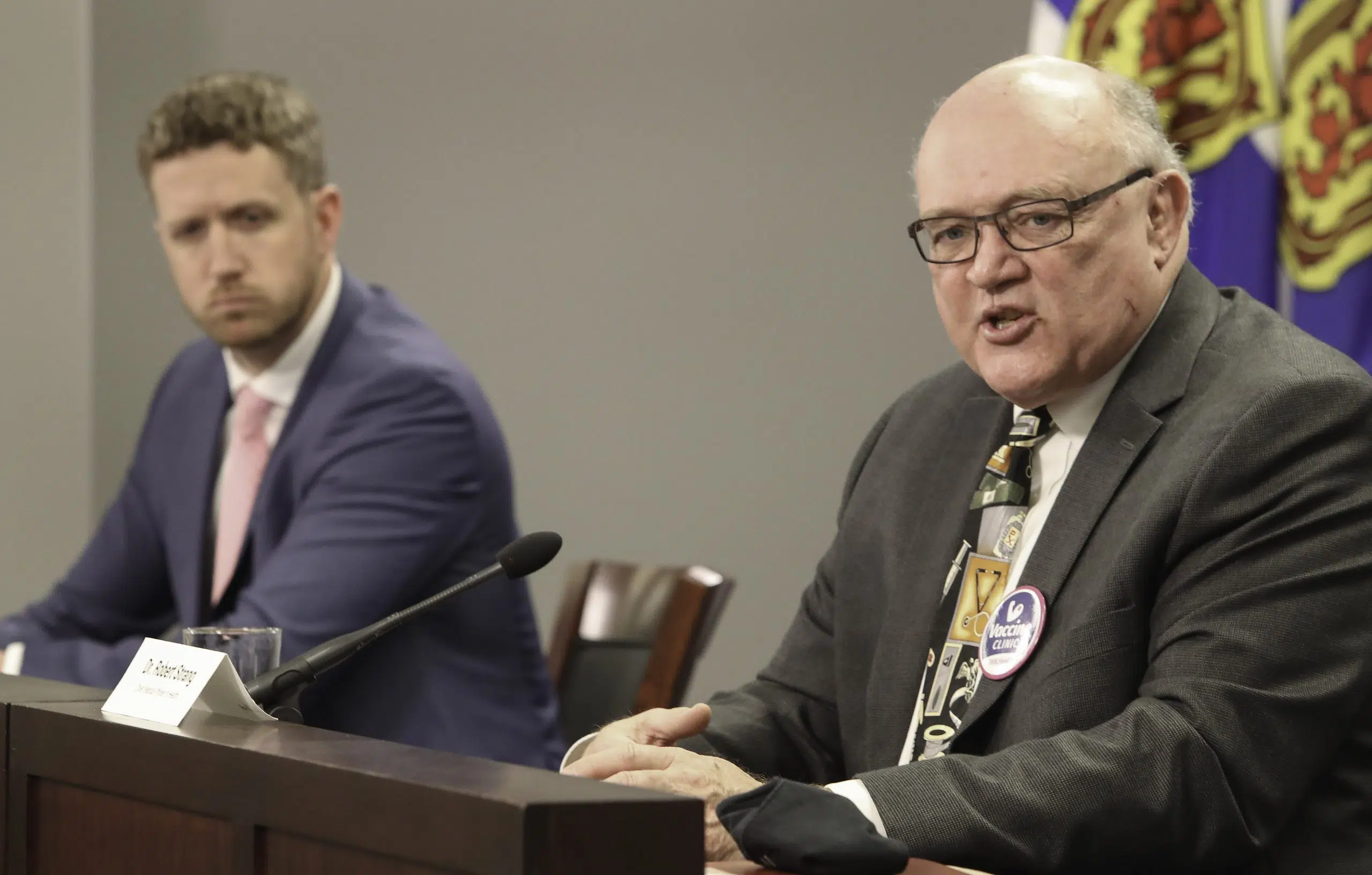
Premier Iain Rankin and Dr. Robert Strang, Nova Scotia’s chief medical officer of health. Photo: CNS
New travel restrictions were announced today for people to enter Nova Scotia outside of Atlantic Canada.
It comes amid rising COVID-19 cases related to travel and early signs of possible community spread in the Halifax area.
Starting on Thursday at 8 a.m. people from outside Nova Scotia, Prince Edward Island and Newfoundland and Labrador will not be allowed to enter Nova Scotia unless their travel is essential or they are permanent residents.
Premier Iain Rankin discussed the decision at today’s COVID-19 briefing.
“I know that some may be disappointed by this,” said Rankin. “But as premier I have committed to ensure that we continue to look out for the public safety of Nova Scotians and take action where required.”
According to the province the types of travel from outside Nova Scotia, Prince Edward Island or Newfoundland and Labrador considered essential are:
- people who live in Nova Scotia but their primary employment is in another province
- federally approved temporary foreign workers
- people who need to participate in-person in a legal proceeding in another province
- post-secondary students coming to study in Nova Scotia
- post-secondary students returning to their primary or family residence in Nova Scotia and parents who accompany them
- parents picking up a student in Nova Scotia to take them home as quickly as possible
- people who can demonstrate that they already have a new permanent address in Nova Scotia as of April 21 and are moving here permanently
- people traveling for child custody reasons following the child custody protocol
- people who are exempt from self-isolation following the exempt traveler protocol
- people traveling between Nova Scotia and New Brunswick for work, school or children in child care, following conditions in the protocol for travel between these provinces
The province announced nine new cases of COVID-19 today. Six are in the Central Zone with five in close contacts of previous cases and one under investigation. There is one new case in the Eastern Zone and two in the Western Zone, all related to travel.
All of the people have been self isolating.
Chief Medical Officer of Health, Doctor Robert Strang, discussed what Nova Scotians need to be doing at this time.
“We do need people to pay attention. This increase in COVID-19 activity is a warning sign,” said Strang. “We have been in this position before and we’ve worked together to reduce case numbers. The border measures are critical and will help but there are things that all of us need to do as well.”
Strang urged all Nova Scotians to continue following public health guidelines. He also discussed the rise of small clusters of cases in the Halifax area where the original source has not been identified.
“There are early signs of possible community spread in the Sackville, Halifax, Dartmouth and Lawrencetown areas,” said Strang. “Investigations are ongoing, we are monitoring the things closely and doing broad testing. We will take early and stronger action if necessary.”
Unrelated to today’s case numbers, two UK variant cases were identified. The province says that they were both related to travel
There are now 68 active COVID-19 infections in Nova Scotia.







